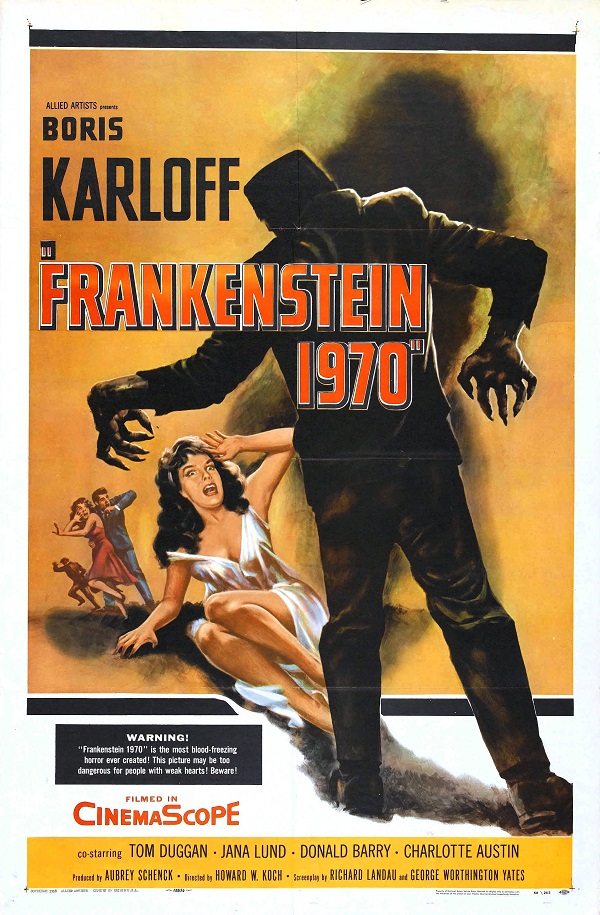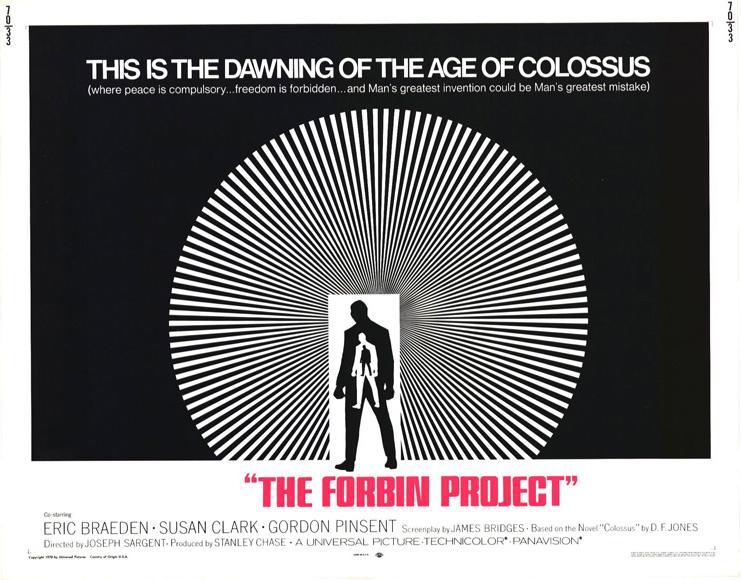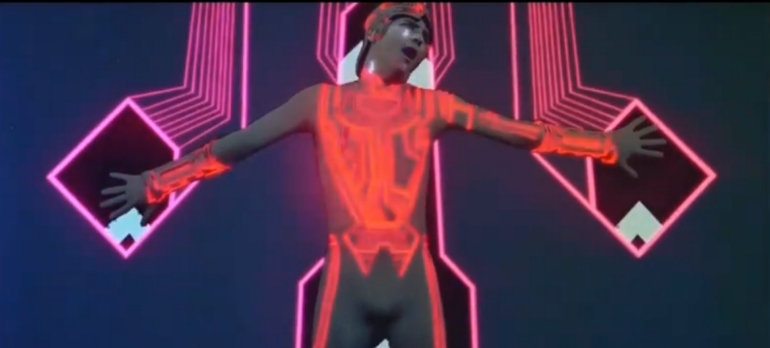“Frankenstein 1970” (1958): A Future-Past Vision of a Cinematic Icon – Review

The Frankenstein narrative, stemming from Mary Shelley’s groundbreaking 1818 novel, has seen myriad adaptations, variations, and reinventions. When the 1958 film “Frankenstein 1970” was introduced, it wasn’t merely another retelling; it was a reimagining set in a then-futuristic world, aiming to merge the familiar horror of the past with the imagined horrors of the future. Directed by Howard W. Koch and starring the iconic Boris Karloff, “Frankenstein 1970” bears the weight of its legacy while trying to carve a niche for itself.
Narrative Dynamics: A Shift in Time and Ethos:
“Frankenstein 1970” is distinguished by its temporality. Set in a future (from the perspective of the 1950s), the film envisages a post-war world where the horrors of nuclear warfare have taken a toll. The story follows the last descendant of the Frankenstein family, Dr. Victor Frankenstein, played by Boris Karloff. Now aged and disfigured from radiation, he accepts a deal to allow a TV crew to film in his castle, using the funds to revive his monstrous legacy. The “monster” he intends to create is imbued with themes of nuclear anxiety, resonating with the Cold War-era audience.
This temporal shift introduces technological and scientific advances that bring a new dimension to the monster-making process. Instead of the traditional lightning-powered resurrection, there’s a nuclear reactor and modern machinery, symbolizing society’s shift in fears from the supernatural to the man-made threats of the atomic age.
Boris Karloff: A Return to Haunting Roots:
Boris Karloff’s association with Frankenstein is cinematic legend, with his 1931 portrayal of the monster in James Whale’s “Frankenstein” leaving an indelible mark. In “Frankenstein 1970,” Karloff returns, but this time as the doctor. His performance encapsulates the anguish, obsession, and moral conflicts of a man burdened by his family’s dark past and his personal disfigurement from radiation.
Karloff’s nuanced portrayal gives depth to the film, allowing the audience to sympathize with his character’s anguish while being repulsed by his actions. His commitment to the role, despite health issues during production, demonstrates his dedication to the craft and the Frankenstein legacy.
Behind-the-Scenes Evolution:
The making of “Frankenstein 1970” is a testament to the changing dynamics of Hollywood. The film was produced during the transition phase from the classic studio system to a more independent mode of production. This change is evident in the film’s production values, which, while modest compared to the big-budget films of the era, still managed to capture the Gothic essence of the Frankenstein narrative.
Cinematographer Carl E. Guthrie’s work on the film stands out. He uses shadows, angles, and lighting to create an eerie ambiance, reminiscent of the German Expressionist influences of the earlier Frankenstein films. The set designs, though limited by budget constraints, effectively convey the blend of the old (the gothic castle) and the new (the laboratory with its modern equipment).
Another intriguing aspect of the film’s production was its 3D filming technique. While the film was eventually released in the standard format, initial plans to film in 3D were indicative of Hollywood’s experimental phase, trying to counter the rising popularity of television.
A Legacy Revisited:
“Frankenstein 1970” serves as a fascinating bridge between the traditional and the modern, both in its narrative and its production. It encapsulates a period in Hollywood when the industry was undergoing significant changes, and narratives were evolving to mirror contemporary anxieties. Through its futuristic lens, the film questions the ethical implications of unchecked scientific advancements and the haunting legacies that individuals and societies carry. With Karloff’s compelling performance, atmospheric visuals, and a narrative that resonates with atomic age anxieties, “Frankenstein 1970” stands as a testament to the enduring and adaptable nature of the Frankenstein mythos in the cinematic realm.



